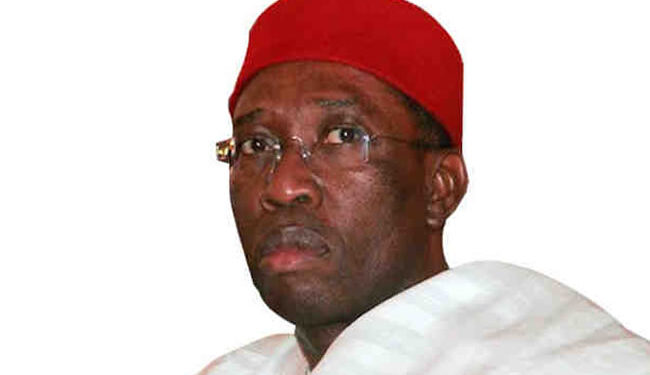The arrest and detention of former Delta State Governor Ifeanyi Okowa by the Economic and Financial Crimes Commission (EFCC) have ignited intense debate across Delta State, leading to calls for a broader investigation into financial mismanagement among former governors. Okowa was detained for five days over accusations of diverting N1.3 trillion in funds from the 13% oil derivation fund between 2015 and 2023. These allegations, along with accusations of misappropriating an additional N40 billion in shares for a floating liquefied natural gas project, have spurred widespread discussion among Delta residents and officials.
According to EFCC sources, Okowa was invited to the agency’s Port Harcourt office, where he was subsequently detained as part of an ongoing investigation into financial dealings during his tenure. The agency is examining claims that he diverted funds for personal projects, including acquiring properties in Abuja and Delta State. His arrest has become a focal point in public spaces and government offices in Asaba, with many questioning whether the former governor remains under investigation.
In the wake of Okowa’s detention, Delta State Governor Sheriff Oborevwori, via an aide, emphasized the presumption of innocence, urging Deltans to remain calm. “Arrest is not proof of guilt,” stated the governor’s aide, adding that the investigation should run its course in court if required.
The Delta chapter of the All Progressives Congress (APC) praised the EFCC’s actions, framing Okowa’s detention as part of a broader campaign to end corruption in public office. APC spokesperson Valentine Onojeghuo remarked that Okowa’s administration faced numerous accusations of financial misconduct and that his arrest should serve as a warning against impunity in government.
Adding to the criticism, a local human rights advocate, Anthony Asakitikpi, lauded the EFCC’s swift response and demanded that all “looters” of Delta State’s treasury be held accountable. Others voiced concerns about selective justice, calling for similar scrutiny of other past governors to ensure that the anti-corruption campaign applies equally.
In defense of the former governor, Olisa Ifeajika, Okowa’s former chief press secretary, disputed the allegations, asserting that Okowa “cleared himself” of the charges and cooperated fully with the EFCC. He called the accusations “outlandish” and stated that Okowa held no personal stake in any alleged properties or business interests as claimed by the petitioners.
Human rights organizations, such as the Anti-Corruption and Integrity Forum, criticized the EFCC’s handling of Okowa’s detention, suggesting that the media coverage was politically motivated. At a press briefing, Forum chairman Prince Kpokpogri argued that Okowa’s willingness to appear voluntarily for questioning distinguished him from other high-profile figures who have resisted arrest.
As the dust settles, Delta residents await further developments, with many expressing a hope that the investigation will shed light on the state’s fiscal management and curb potential misconduct among public officials.
























